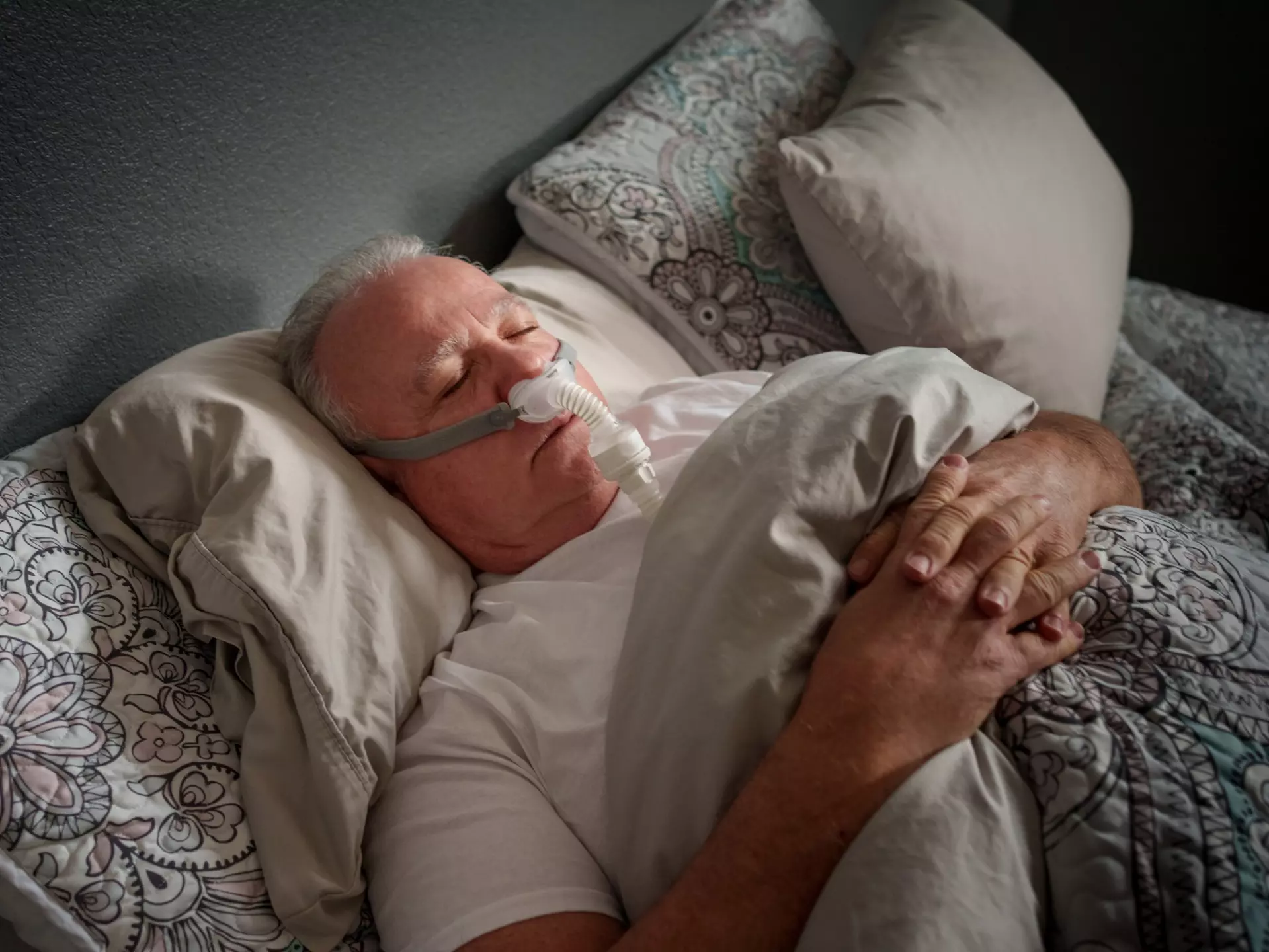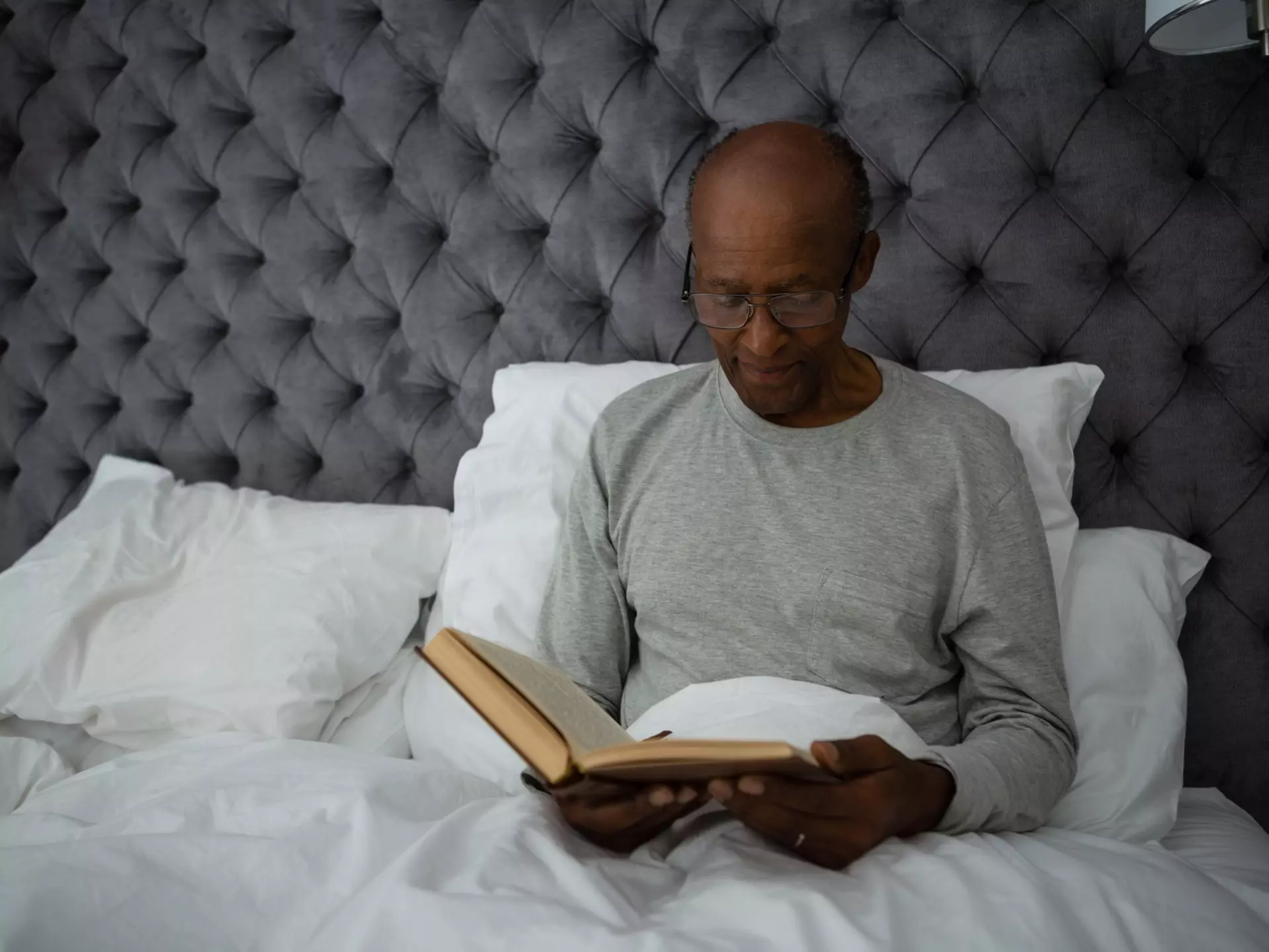A good night’s sleep is essential at any age. However, as we grow older, age-related changes can affect how well and how much we sleep. It’s natural to feel concerned when a loved one starts sleeping more than usual. Many caregivers find themselves asking: Why do seniors sleep so much?
In this blog, we’ll explore the relationship between sleep and aging, and we’ll share practical tips to help you or a loved one sleep better.
What’s a Normal Amount of Sleep for Seniors?
Many seniors and their families often wonder: Do you need less sleep when you get older? And how much sleep do seniors need? Experts generally agree that older adults need about the same amount of sleep as they did when they were younger — around 7 to 9 hours of restful sleep each night.
While it’s not unusual for seniors to sleep more than usual, excessive sleep can sometimes signal an underlying health issue, especially if other symptoms are present.
If you or someone you love is sleeping more than usual or taking frequent naps during the day, it’s a good idea to talk to a doctor.
Why Do Seniors Sleep So Much?
It’s not uncommon for seniors to experience changes in their sleep patterns, including sleeping for extended periods. If you or your aging parent is having trouble staying awake or falling asleep, you’re not alone. According to recent research, nearly 50% of older adults experience sleep-related issues.
There are a few key reasons why this can happen, including:
Normal Age-Related Changes
Some natural changes that come with aging can cause you or your aging parent to sleep more. While most of these changes are expected and not usually a cause for concern, they can still affect how much and how well someone sleeps.
These may include:
- Changes in Circadian Rhythm: The circadian rhythm, our body’s internal clock that regulates sleep and other daily activities, also changes significantly as we age. These shifts can affect how your loved one sleeps, causing them to go to bed earlier, wake up more often at night, or sleep excessively during the day.
- Boredom: With fewer responsibilities, many older adults have more free time on their hands. If your loved one has no activities to engage in during that free time, they may sleep more.
- Lower Energy Levels: It’s natural for energy levels to decline with age. Some seniors may notice that everyday tasks take more effort than they used to, or that their bodies recover more slowly from activity. These dips in energy can make older adults feel the need to nap more often, especially in the afternoon or after a meal.
- Reduced Activity: Changes in mobility or strength may prevent your aging parent from doing some activities they enjoy. While rest is important, too little physical activity can increase fatigue and disrupt their natural sleep cycle.
- Daytime Naps: Seniors who take frequent or long naps during the day may find it harder to sleep through the night. This disruption in their sleep pattern can create a cycle where they sleep more during the day to compensate for poor sleep at night.
Sleep Disorders and Disruptors
If your loved one is napping more than usual, it could be due to a sleep disorder that’s keeping them from getting restful sleep at night.
These may include:
- Sleep Apnea: Sleep apnea affects the way a person breathes during sleep. It may cause some to snore loudly or suddenly wake up at night, leading to poor sleep quality and tiredness during the day.
- Restless Leg Syndrome (RLS): Seniors with restless leg syndrome often experience uncomfortable sensations in their legs, which tend to worsen in the evening and at night. This can make falling or staying asleep difficult, usually leading to more daytime naps.
- Sleep Fragmentation: It’s common for older adults to wake up several times during the night, whether to use the bathroom, due to discomfort, or sometimes without knowing why. These interruptions can lead to increased sleep during the day, especially in the afternoon.
- Vitamin and Nutrient Deficiencies: Our bodies tend to become less efficient at absorbing and using certain nutrients that affect the sleep cycle, like magnesium, vitamin D, and B vitamins. This can impact an individual’s sleep pattern.
- Chronic Conditions: Pain or discomfort from conditions like cancer, diabetes, or thyroid disorders may keep someone up at night, leading to more naps during the day.
- Medication Side Effects: Some prescriptions, like blood pressure medications and antidepressants, may cause drowsiness or disrupt regular sleep cycles, especially in seniors. If your aging parent suddenly sleeps more after starting a new medication, it’s a good idea to discuss it with their doctor.

Medical Issues
Why do seniors sleep so much? Sometimes, increased sleep can be linked to a medical condition, especially if you notice other changes in behavior, mood, or health.
A few common issues include:
- Depression: If your family member is napping often or withdrawing from activities they used to love, it’s a good idea to check in on their emotional health. In older adults, depression doesn’t always look like sadness.
- Anxiety: Navigating the aging experience isn’t always easy. Constant worries about health, finances, or family can make it difficult for some seniors to sleep well.
- Early Signs of Dementia: In some cases, changes in sleep can be one of the first signs of cognitive decline. Someone with early-stage dementia may become confused about day and night or nap more often.
- Heart Conditions: Heart conditions like heart disease or congestive heart failure can cause shortness of breath, especially when lying down, impacting how well someone sleeps.
- Neurological Conditions: Age-related conditions that affect the brain, like Parkinson’s disease, can make it harder for someone to fall asleep or cause them to wake up more often, leading to poor sleep.
How to Support Healthy Sleep Habits in Seniors
If you’re asking: “Why do seniors sleep so much?” it may be a good idea to check whether there’s an underlying reason your parent is sleeping more. Here are some practical strategies you can use to help yourself or someone you love sleep better:
- Consistent Sleep Schedule: If your loved one tends to wake up or fall asleep at different times, sticking to the same bedtime and wake-up time each day can help regulate their sleep cycle and improve sleep quality.
- Limit Daytime Naps: While a short nap can be refreshing, napping multiple times a day can make it harder to fall asleep at night. Try to keep naps under 20–30 minutes, and avoid napping in the late afternoon or evening.
- Encourage Physical Activity: In addition to many other wellness benefits, adding gentle exercise to your routine can also help you sleep better at night. The key is choosing something you’re comfortable with and enjoy, so you’re more likely to stick with it. Try to avoid vigorous or strenuous activities that could lead to injury or accidents.
- Optimize the Sleep Environment: A comfortable and quiet environment can make it easier to fall asleep. Ideally, the bedroom should be dark, quiet, and free from distractions. You can use blackout curtains, a white noise machine, or a small fan to help create more comfortable conditions for yourself or someone you love.
- Establish a Bedtime Routine: If your aging parent has trouble falling asleep, a relaxing routine can help their body wind down and prepare for rest. This might include dimming the lights, reading their favorite book together, playing soothing music, or taking a warm bath before bed. It’s also best to avoid caffeine and screen time right before bedtime.
- Review Medication: Some medications can make seniors feel tired and drowsy during the day or make it harder to fall asleep at night. If you notice changes in your parent’s sleep after starting a new medication, it’s always a good idea to talk to their doctor.
- Wear a Sleep Tracker: Wearable tech, like sleep trackers, can show different markers of sleep quality, like how long someone slept, how often they woke up, and how much deep sleep they’re getting. This data can help you spot early signs of sleep-related issues. If the tracker shows frequent disruptions, consider speaking to your doctor or a sleep specialist.

Senior Living With StoryPoint Group Communities
At StoryPoint Group communities, our residents’ needs are at the heart of everything we do. Our goal is to help each person make the most of each day, in a way that’s most meaningful to them.
Whether you’re looking for a relaxed lifestyle with convenient access to amenities and plenty of social opportunities, need additional support with activities of daily living (ADLs), or simply want a place to call home, we’d love to be part of your journey.
To learn more about life with us or just to say hello, feel free to contact us or give us a call at 1-844-275-9990.












